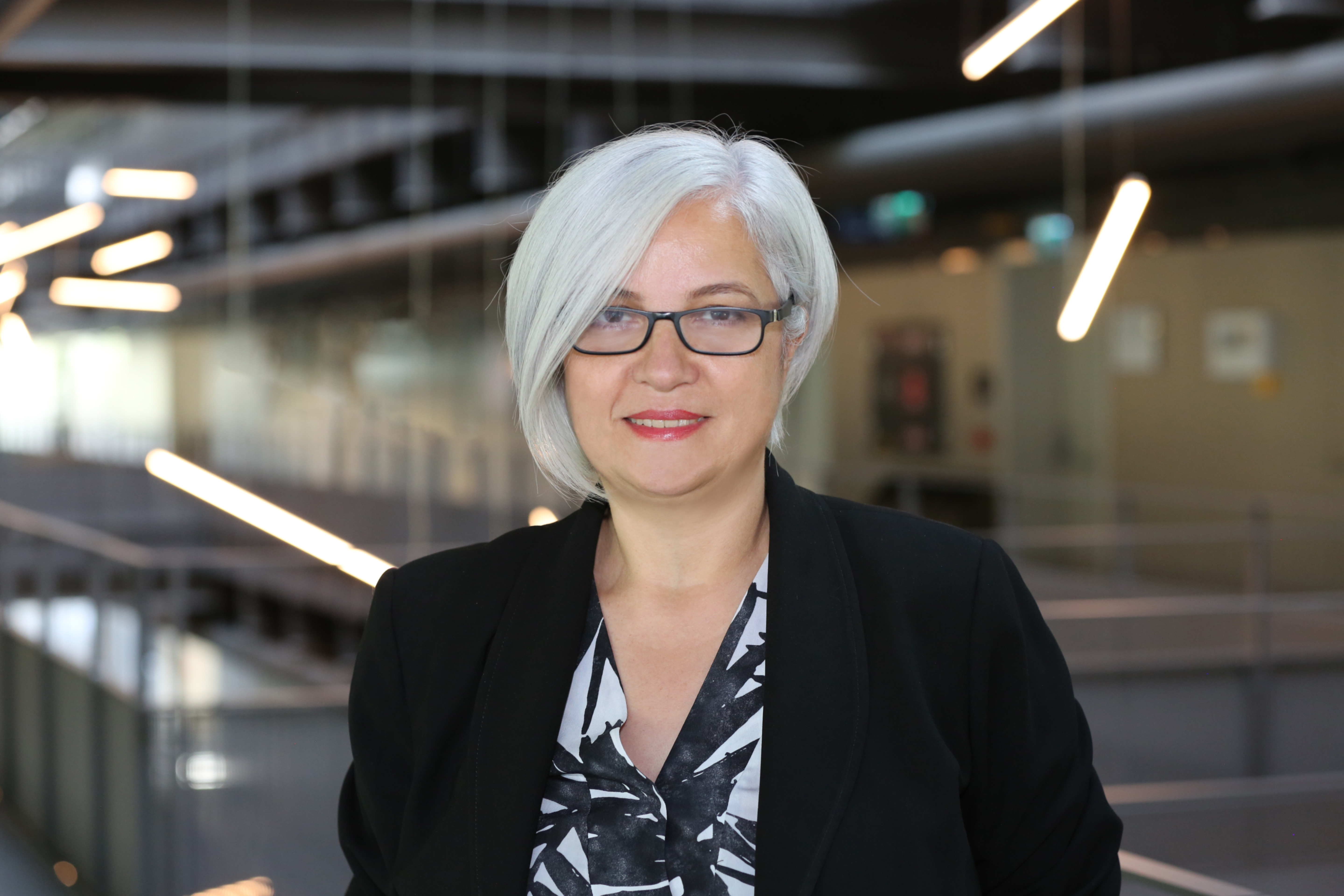
Prof. Dr. Saniye Dedeoğlu
Saniye Dedeoglu is professor of social policy in the Department of Labour Economics and Industrial Relations at the University of Mugla, Turkey. Her research interest centres around the issues gender, work and migration in contemporary Turkey.
Current affiliation
- The Department of Labour Economics and Industrial Relations, Mugla University, Turkey
Hosting institute
Contact
- Email: …
Key expertise
- Gender
- Migration
- Labour
Regional expertise
- Türkei
Profile according to FFVT taxonomy
Fields of research
- Development Research
Scientific topics
- Gender
- Work / Labour Market
Disciplines
- Sociology
Professional Career
Ph.D., School of Oriental and African Studies (SOAS), Development Studies, 2005, London, UK.
MSc., London School of Economics, Development Studies, (DESTIN), 1997, London, UK.
B.A., Marmara University, Faculty of Economics and Administrative Sciences, Economics, 1992, Istanbul, Turkey.
Relevant publications
- Dedeoğlu, S. Cultivating Precarisation: Intersecting Vulnerabilities of Syrian Refugees in the Turkish Agricultural Sector. In Work, Employment and Society, 36(2), 345–361. 2022. SAGE.
- Dedeoğlu, S. Syrian Refugees and Agriculture in Turkey: Work, Precarity, Survival, IB Tauris. 2022. Bloomsbury Publications.
- Dedeoğlu, S. Migrants, Work and Social Integration: Women’s Labour in the Turkish Ethnic Economy in London (Series on Citizenship, Migration and Minorities). 2014. Palgrave/Macmillan.
- Dedeoğlu, S, with Ibrahim Sirkeci, Tuncay Bilecen, Yakup Çoştu, M. Rauf Kesici, B. Dilara Şeker, Fethiye Tilbe, K. Onur Unutulmaz. Little Turkey in Great Britain. 2016. Transnational Press London.
- Dedeoğlu, S, with Sinem Sefa Bayraktar. Bitter Lives of Syrian Women on Fertile Lands: Gender, Migration and Labour. In L. Williams, S. Kaşka, E. Çoşkun (Eds.), Women, Migration and Asylum Seeking in Turkey . 2020. Palgrave/MacMillan.
Research profile
Q1. Who are you?
I am a professor of social policy in the Department of Labour Economics and Industrial Relations at the University of Mugla, Turkey. I hold a PhD in Development Studies from SOAS, University of London and worked as a Marie Curie Fellow at the Center for Research in Ethnic Relations at Warwick University, UK. My research interest centres around the issues gender, work and migration in contemporary Turkey. My writing on women’s economic activities and migration experience have appeared in scholarly books, edited books and journals. I am the author of Syrian Refugees and Agriculture in Turkey (IB Tauris, 2022), Migrants, Work and Social Integration (Palgrave 2014) and Women Workers in Turkey: Global Industrial Production in Istanbul (IB Trauris 2007).
Q2. What was your motivation for applying for the FFVT fellowship? Why Germany?
I would like to develop a research project comparatively explores the resettlement experiences of refugees in Germany and Turkey and how their experience in different contexts affect the ways in which gendered practices change in similar communities. The FFVT fellowship and IMIS at Osnabrück University offer a great opportunity to further develop my future research project, explore the German migration context more, and connect with scholars of forced migration and refugee studies for future collaborations.
Q3. What do you expect from the fellowship?
I believe that migration is a global social and economic issue and local solutions remain short to provide durable solutions to the problems and social change associated with it. Therefore, international cooperation and collaborations are vital in understanding different dynamics surrounding it. I expect to exchange ideas and research experiences, as well as share knowledge with experts in forced migration and refugee studies engaged in the FFVT network. Thus, I aim to contribute to the FFVT’s project objectives of expanding academic collaborations, promoting transnational networking as well as supporting mutual evidence-based research in Germany and Turkey.
Q4. What is the focus of your work, and what is innovative about it? / What are your planned outcomes and activities for the fellowship period? And how do they relate to your FFVT hosting institution/ the FFVT cooperation project?
During the FFVT fellowship, I would like to develop a cross-national comparative research project that investigate the role of gender in refugee women’s social and economic participation following their migration. For the fellowship period, I aim to develop my project further and visit refugee community organisations to collect information on women’s experience in Germany. Additionally, I would like develop my networks further to present my current research finding to the international academic audience and policy makers as widely as possible.